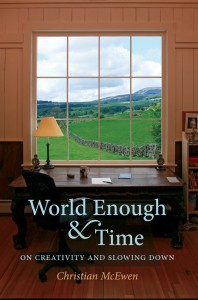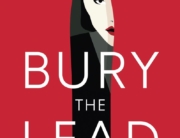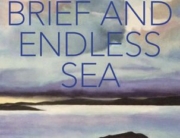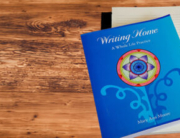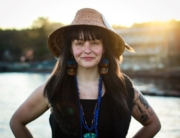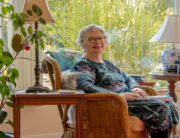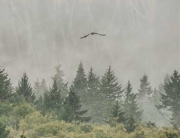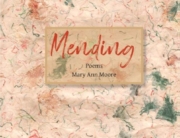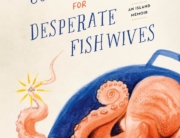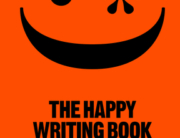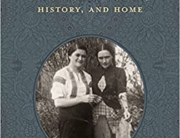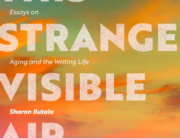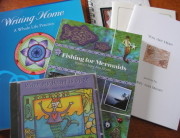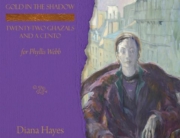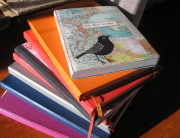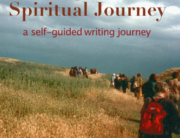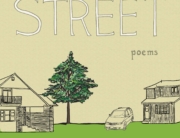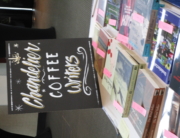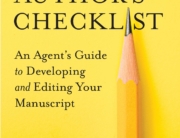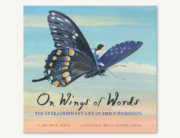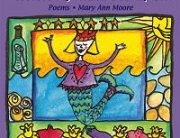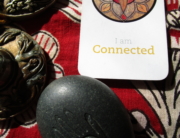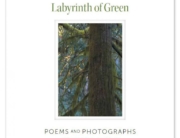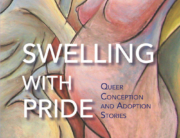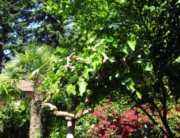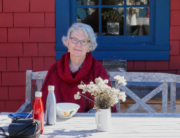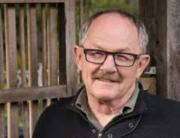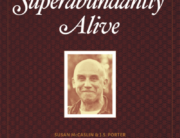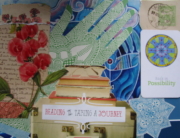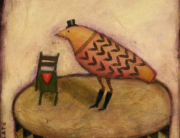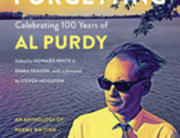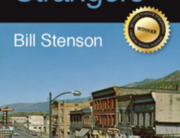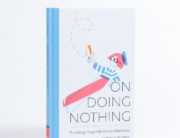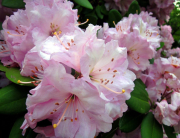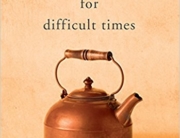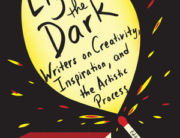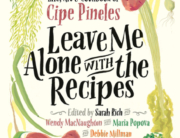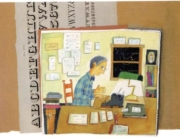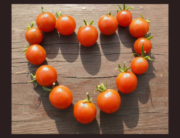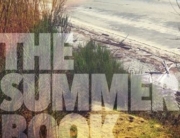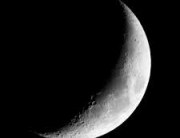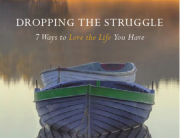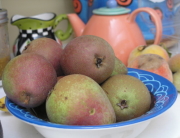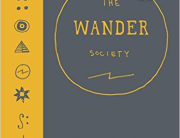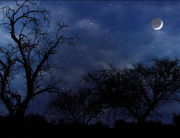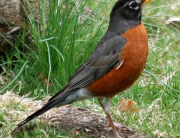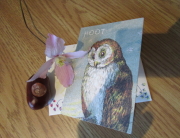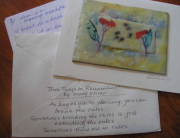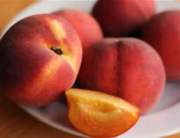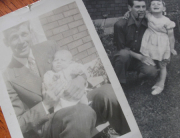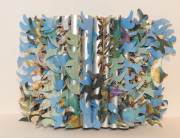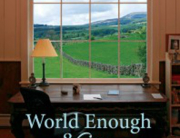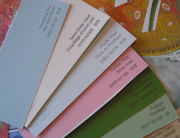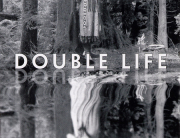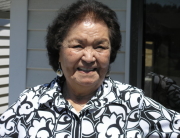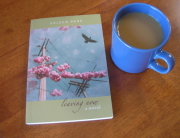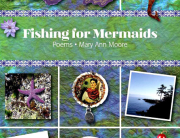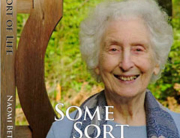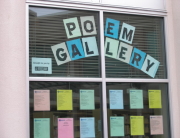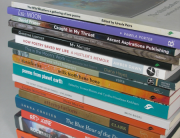My library books aren’t due until June! There’s one huge volume of poetry I’m glad to keep until then but that means no borrowing either. I’m grateful we can order books from local independent bookstores as they are “open” in that way these days. Also, I can look to my own bookshelves where there is a wealth of fascinating material worth dipping into again.
World Enough & Time: On Creativity and Slowing Down by Christian McEwen (Bauhan Publishing, 2011) is one of those books The cover image shows the desk McEwen used the first time she stayed at the MacDowell Colony for writers in Peterborough, New Hampshire, taken by their in-house photographer Jo Morrissey. The inset photograph is by publisher Sarah Bauhan of a Scottish landscape in south west Galloway. Christian McEwen was born in London and grew up in the Borders of Scotland. She now lives in Williamsburg, Massachusetts.
While writing World Enough & Time, McEwen explored “the ways in which ordinary joy might flourish in a culture addicted to speed and over-work.” As a reader, I got to do that sort of exploration too, long before we had any notion of a world pandemic changing our busy world in the early spring of 2020. The book is definitely the compendium McEwen intended “to which readers can turn again and again in search of nourishment.”
Christian McEwen urges us to slow down, pause and reflect. Some of us are getting more of an opportunity to do that these days.
World Enough & Time is a pleasure to read for McEwen’s wisdom, the sharing of her own story as well as for the many reminders of beloved poets and writers like Virginia Woolf, Adrienne Rich, Audre Lorde, Henry David Thoreau and Thomas Merton. My favorite poets are included with quotes or excerpts from their work: Rainer Maria Rilke, Robert Hass, William Stafford, Mary Oliver and Jane Hirshfield.
It is in our idleness, in our dreams, that the submerged truth
sometimes comes to the top.
Virginia Woolf
Other teachers and scholars such as environmentalist David Orr, philosopher William James, mindfulness-based stress reduction teacher and author Jon Kabat-Zinn, theologian Matthew Fox, naturalist Barbara Bash, and medieval mystic Hildegard von Bingen are referred to and quoted. McEwen also refers to her own friends and colleagues.
Statistics and facts are woven in about our usual fast-paced lives. While they may be jarring in their impact they don’t impede the flow as the book is beautifully crafted. With minimal leisure time and little time for reflection we have been suffering from “hurry sickness,” a phrase that originated with Dr. Larry Dossey. Even words that were once hyphenated now lack the hyphen as “we no longer have time to reach over to the hyphen key!” I wonder if slowing down as we are forced to do these days as we line up outside the grocery store, will help us as we move forward with fewer restrictions, to less busyness.
Among my favorite chapters is “The Intensest Rendezvous” about the joy of reading with several poets noted including Wallace Stevens, Mark Strand, Muriel Rukeyser, Denise Levertov, Charles Simic, and Sam Hamill.
Sam Hamill, one of the poets I had the pleasure of meeting at the Cascadia Poetry Festival in Nanaimo in 2015, asked: “What use is poetry?”
I sat down September twelfth,
two thousand-one in the Common Era
and read Rumi and kissed the ground.
Sam Hamill
Jane Hirshfield has written:
To read a book of poetry
from back to front,
there is the cure for certain kinds of sadness.
In the chapter entitled “Learning to Pause, Brother David Steindl-Rast offers some advice on lighting a candle that itself can be seen as prayer. The author also describes her home altar and recalls her time in Plum Village in France, home of Zen Buddhist monk Thich Nhat Hanh. He advises: “Take care of the joyful present so that it can be the joyful past.”
“Across the Bridge of Dreams” is a fascinating chapter in which McEwen writes of Harriet Tubman who dreamed precise escape routes for the underground railroad which carried slaves into freedom and Mexican artist Frida Kahlo who would daydream about an imaginary friend.
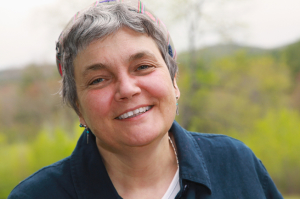 Each chapter is divided into eight to ten shorter sections so even focusing on one short section each day will give readers a chance to muse and be encouraged in their own creative practice. “Tactics” at the end of each chapter offer suggestions for further exploration as well as a couple of quotes to ponder.
Each chapter is divided into eight to ten shorter sections so even focusing on one short section each day will give readers a chance to muse and be encouraged in their own creative practice. “Tactics” at the end of each chapter offer suggestions for further exploration as well as a couple of quotes to ponder.
McEwen [pictured to the left] writes that “it should gradually become apparent that through the door of the ordinary, when treated with curiosity and respect, the extraordinary can appear: a song, a tale, a painting, a new poem.” There are simple steps we can take in “pockets of slowness concealed inside each ordinary day.” We can find “ten minutes in the morning in which to write down our dreams, five minutes in the late afternoon in which to stand by a window and watch the changing colors of the sunset, another pause before bed for a brief moment of prayer.”

